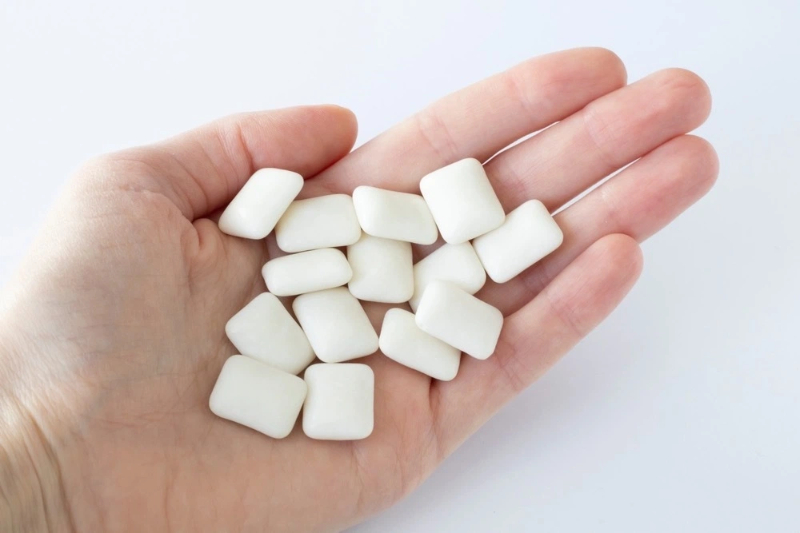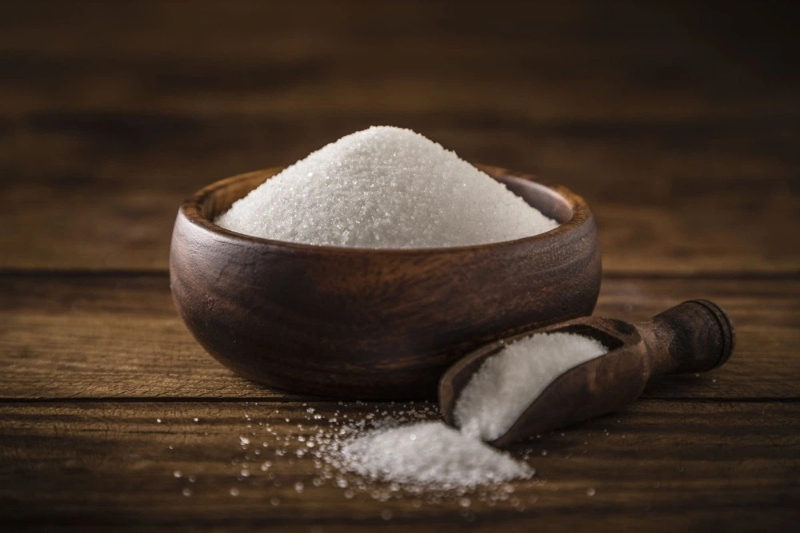







Content Menu
● What Stevia Is and How It Is Made
● Digestion and Gastrointestinal Impact
● Stevia in Industrial Applications
● Myths and Realities About Stevia
● FAQ
>> 1. Is pure Stevia a laxative?
>> 2. Can Stevia affect gut bacteria?
>> 3. Is Stevia suitable for people with diabetes?
>> 4. Are there any safety considerations with Stevia?
>> 5. What should manufacturers consider when formulating Stevia-based products?
Present a clear proposition: Stevia is a natural, zero-calorie sweetener derived from Stevia rebaudiana, widely used as a sugar substitute in foods, beverages, and health-care products. Emphasize its growing role in global nutrition strategies, especially for health-conscious manufacturers in the food, beverage, and healthcare sectors. Note that while some sweetener blends contain sugar alcohols that can have laxative effects, pure Stevia itself is not a laxative and is generally well tolerated in typical usage. This framing ties closely to your factory's strengths in natural sweeteners and blended-sweetener development for overseas clients. Include a concise thesis: Stevia is safe for digestion in standard consumption ranges, but blends may introduce polyols that could affect bowel function.

- Define Stevia: a plant-derived, non-nutritive sweetener obtained primarily from steviol glycosides such as stevioside and rebaudioside A.
- Production and forms: overview of extraction, purification, and typical product formats used in industry (pure extracts, liquids, powders, and standard blends for table-top sweeteners).
- Regulatory status: summarize general approvals in major markets (GRAS status in the US for purified steviol glycosides, EFSA considerations, and caveats about whole-leaf/crude extracts). Tie to implications for your OEM/ODM services and blended-sweetener development.
- Core claim: Pure Stevia does not act as a laxative. It does not ferment in the colon in a way that causes diarrhea, unlike sugar alcohols found in some blends.
- Clarify nuance: Laxative effects are mainly associated with polyols (e.g., sorbitol, xylitol, erythritol in some blends). When Stevia is formulated with such ingredients, laxative effects may appear if consumed in large amounts.
- Gut microbiome considerations: summarize evidence that Stevia consumption has little to no deleterious impact on gut microbiota in typical dietary contexts, while polyols can alter microbial composition and speed of transit in sensitive individuals.
- Practical takeaway for formulators: for health-focused products intended for broad markets, consider using pure Stevia extracts for mid- to high-usage sweetness without polyol blends, or carefully manage polyol content when targeting populations with sensitivity.
- Safety assessments: present a concise synthesis of major health authority positions indicating Stevia's overall safety in approved forms and doses.
- Diabetics and metabolic health: Stevia's potential benefits for blood glucose management in some populations, with emphasis on the variability and the need for dose considerations.
- Population considerations: discuss tolerance across age groups, pregnancy considerations as appropriate, and potential interactions with medications where relevant.
- Product development implications: for your OEM/ODM services, emphasize that Stevia-based formulations can be structured to deliver sweetness without added sugars, aligning with clean-label trends and regulatory compliance.

- Food and beverage uses: table-top sweeteners, ready-to-drink products, bakery items, snacks, dairy substitutes, and pharmaceutical excipients.
- Health support positioning: how Stevia aligns with products aimed at weight management, diabetes care, and gut-friendly formulations.
- Blends vs. pure Stevia: discuss advantages and trade-offs, including sweetness profile, aftertaste considerations, texture impacts, and manufacturing feasibility.
- Your factory's capabilities: highlight blended-sweetener development, tablet production, and OEM/ODM service capabilities that leverage Stevia as a core ingredient, including stability, flavor compatibility, and regulatory documentation.
- Debunk common myths: "Stevia causes cancer," "Stevia is unsafe in pregnancy," or "Stevia is always a laxative" with evidence-based clarifications.
- Clarify misinterpretations about "natural" labeling vs. "crude extracts" and explain why product developers should rely on well-characterized steviol glycosides for consistent sweetness and safety.
Reiterate the central insight: Stevia offers a reliable, gut-friendly sweetness option for a broad spectrum of foods, beverages, and healthcare products, especially when used in pure extracts or well-formulated blends that avoid polyols. Emphasize your factory's strengths in natural sweeteners and customized solutions for overseas manufacturers, including blended sweeteners, tablet production, and comprehensive OEM/ODM services.

No. Pure Stevia does not act as a laxative; laxative effects are associated with certain sugar alcohol blends that may accompany some Stevia products at high consumption levels.
Current evidence indicates Stevia does not significantly disrupt gut microbiota in typical use, though results may vary with polyols and long-term high-dose exposure in some blends.
Yes. Stevia provides sweetness with negligible calories and does not elevate blood glucose in typical usage, making it a favorable option for many individuals managing blood sugar.
Most people tolerate Stevia well. Rare mild gastrointestinal symptoms may occur, particularly with blends containing sugar alcohols; always review product ingredients and recommended usage levels.
Choose the right Stevia extract balance for taste, manage sweetness equivalence to sugar, assess aftertaste and mouthfeel, ensure compatibility with other ingredients, and verify regulatory status in target markets.
[1](https://www.sciencedirect.com/science/article/abs/pii/S187140212400153X)
[2](https://pmc.ncbi.nlm.nih.gov/articles/PMC8600158/)
[3](https://www.webmd.com/food-recipes/what-is-stevia)
[4](https://health.clevelandclinic.org/what-is-stevia)
[5](https://www.sciencedirect.com/science/article/abs/pii/S0924224420304593)
[6](https://pmc.ncbi.nlm.nih.gov/articles/PMC4890837/)
[7](https://ecancer.org/en/news/26775-stevia-leaf-extract-has-potential-as-anticancer-treatment-researchers-find)
[8](https://www.news-medical.net/news/20240122/Sweetener-Stevia-does-not-alter-gut-microbiota-composition-confirms-new-study.aspx)
[9](https://www.goodrx.com/well-being/diet-nutrition/stevia-bad-for-you)
